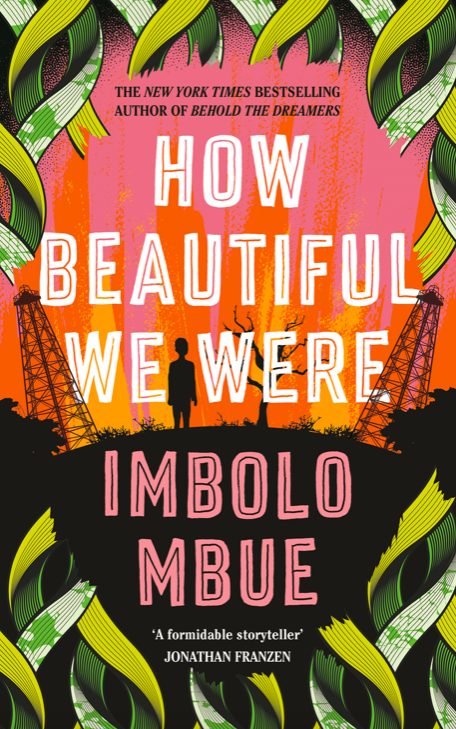How Beautiful We Were opens with a visit to a fictional African village from the honourable representatives from Pexton, the company overseeing the drilling for oil on the adjacent ‘Gardens’. They offer no answers to the villagers’ questions about why their children are dying – but are fulsome in their promises that one day, the people of Kosawa will be proud of Pexton’s interest in their land.
As protagonist, Thula, grows up, her friends continue to sicken and die and the adults in the village continue to ask questions, eventually enlisting the support of an American journalist. The gross degradation of the land and the continued exploitation of the local community is shared in the American press, offering the spectre of justice. When she reaches adulthood, Thula spearheads a movement to seek compensation from Pexton and clean up the now toxic land while her family struggle to silence the ghosts of the past to help themselves move forward.
Imbolo Mbue‘s new novel is an extraordinary, epic work bundling up individual longing, loyalty and loss with corporate greed, government corruption, the rapacious legacy of colonialism and the stolid plod of capitalism. The chapters are presented alternately from members of Thula’s family across generations and from a group of Thula’s ‘age-mates’, known simply as The Children. Hopping between voices, Mbue wrangles four decades of history across two continents, a handful of weighty political theories and philosophical ideas and still manages to maintain a narrative thread that’s as gripping as a thriller.
This is Mbue’s second novel though she started work on it years before her first was published. Mbue hails from a coastal town, Limbe, in Cameroon, a place that also co-existed with the oil industry for better and for worse. Like Thula, she moved to the US to study and was struck by both the freedom and the lack of it available to American citizens. We might suppose that some of Thula’s passion for justice is also shared by Mbue but if this novel is anything to go by, she also brings a sometimes painful dose of pragmatism to the party.
Despite the soot and the encroaching crude oil and the pipelines that “seem to run on forever“, in a gentle and elegant prose, Mbue conveys all that was beautiful in the village. The full moons, forest paths, mango trees and the magnificence of the ocean. The hiccoughing tears when friends and family left life and the stewed chicken smells and hip-swaying palm wine fuelled celebrations at coming of age ceremonies and weddings.
With empathy and insight, the novel depicts the murky collision between two cultures that prize entirely different things. Mbue guides the reader to a grudging recognition that while we may passionately subscribe to opposing sides in an argument, most of us fundamentally want to do right by the people we love. And as a final flourish, courtesy of Thula’s brother, Juba, she reminds us that the border between the two sides is infinitely permeable.
